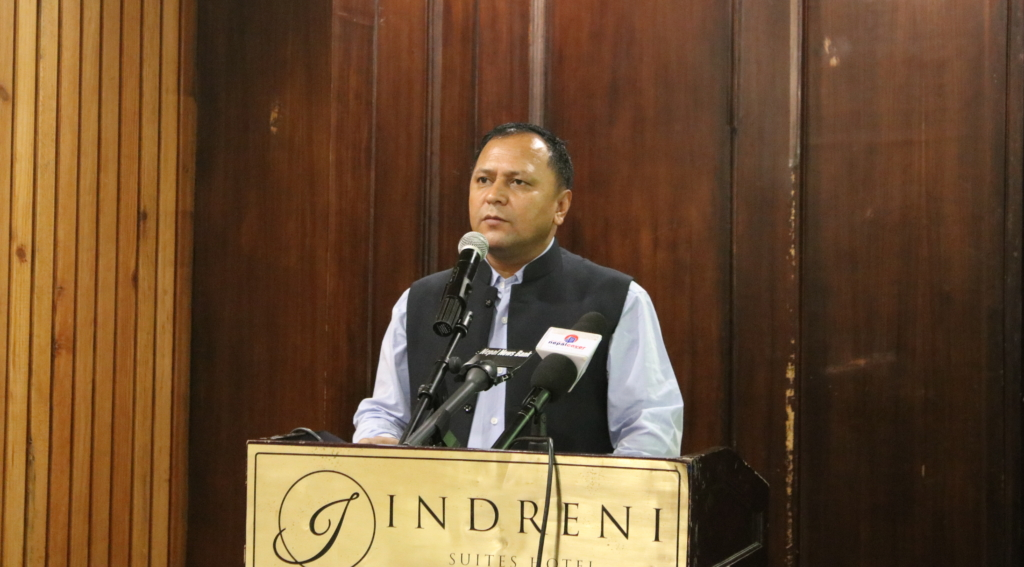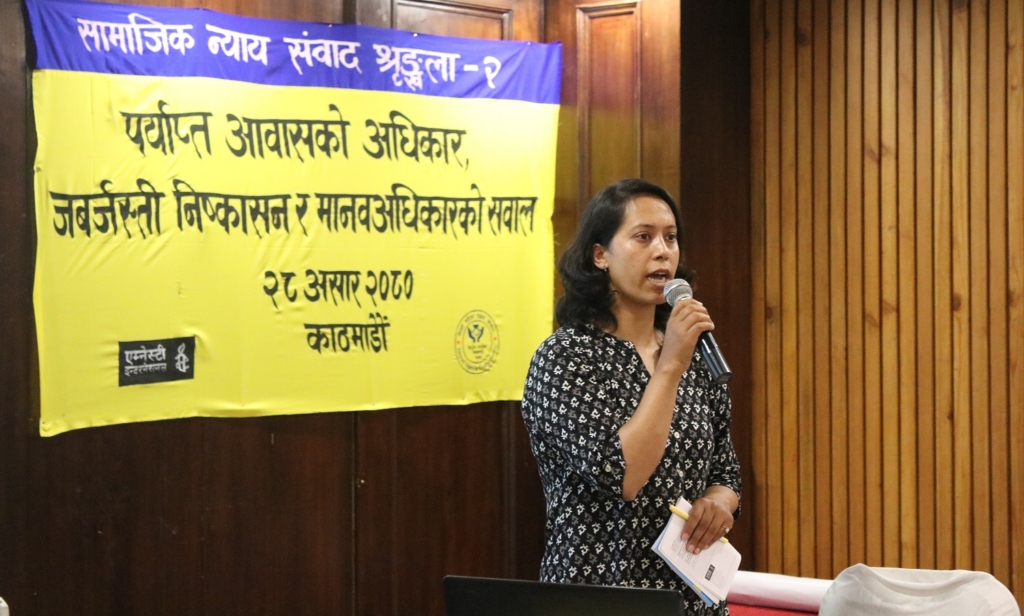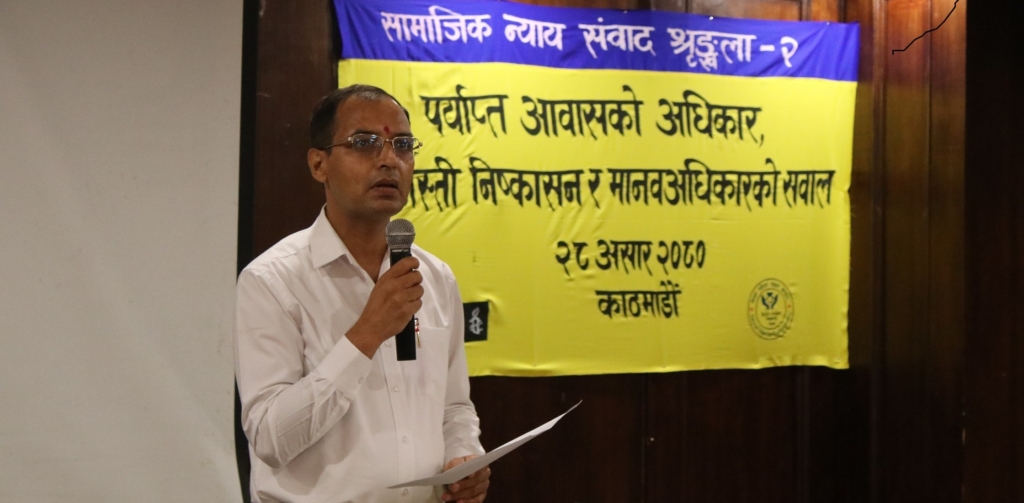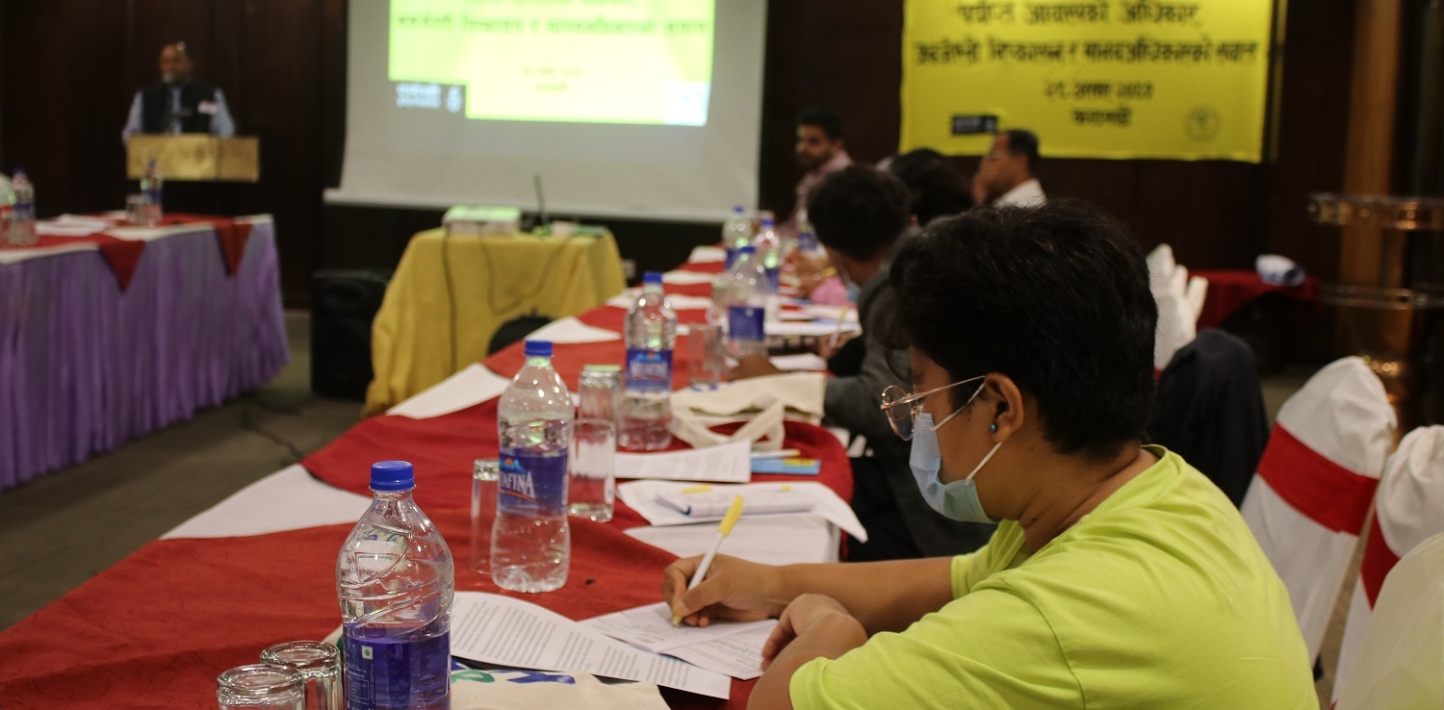On 13 July 2023, Amnesty International Nepal and Nepal Mahila Ekata Samaj co-organised an interactive program with journalists on issues pertaining to the forced evictions of informal settlers, particularly in relation to the infringement of their right to adequate housing. The program was attended by 20 journalists from various media houses, women members of informal settlers’ community, and members of civil society working in the field of land rights, economic, social and cultural rights, and social justice.
Shedding light on the objectives of the program, Nirajan Thapaliya, the Director of Amnesty International Nepal, said that all layers of government have obligations to uphold human rights and the rule of law based on international human rights law, and the country’s Constitution and laws. He added that recognised human rights principles, constitutional provisions, and due process must be followed and respected in solving the issue of informal settlement and that bulldozing homes is not the solution. He also stressed that populism has created a narrative that informal settlers are some kind of problem to society and that journalists and media houses have an immense role to play in countering this narrative and presenting the issue of forceful eviction through a human rights lens to the public.

Following the objective sharing, Bhagavati Adhikari, the Executive Director of Nepal Mahila Ekata Samaj, gave a presentation, which stressed the point that people reside in informal settlements due to compulsion and not out of choice. She spoke about the various reasons why people live in informal settlements, such as migration to flee caste-based discrimination in place of origin, displacement because of armed conflict, infrastructure projects and natural calamities, due to policies of government in conservation areas and buffer zones, etc.
During her presentation, she also countered the popular narrative; provided the historical trends of forced eviction in Nepal (which started in 2059 in Dharan, Sunsari and has continued till date); highlighted the effects of forced eviction on the individuals residing in informal settlements, such as mental stress, social stigma, sexual – and gender-based violence post forced eviction incidents, among others. She also urged the media to employ ample caution in the words they choose to write while reporting on the issues of informal settlers, landless people, and forced eviction, as negative or false reporting can further exacerbate the stigmatization of informal settlers and instil a fear among them.

Raju Chapagain, a constitutional and human rights lawyer, then provided analysis on the issue of forced eviction and rights of informal settlers from the perspective of constitutional law and history, and international human rights law and standards. He stated that historically, all social and political protest movements in Nepal have occurred as a result of a lack of fulfilment of economic and social rights, especially rights relating to access to and ownership of land, security of land tenure for habitat and agriculture.
He added that the Universal Declaration of Human Rights has identified that fulfilment of human rights, including economic and social rights, are a prerequisite for sustainable peace and that issues of landlessness, non-fulfilment of right to adequate housing, and forced eviction could be a cause of conflict in the future as well.

The Constitution of Nepal, the Right to Housing Act 2075, and the Right to Food Act 2075 forbids eviction of persons without government authorities providing an alternative, he said. The seventh and eighth amendment of Land Act has provided clear definitions of key legal terminologies and has provided ways in which the issue of illegal settlement can be managed. The local governments must follow the due process and agreements that it has signed with federal authorities. He further stated that relevant regulations regarding acts made to implement fundamental rights in the Constitution of Nepal must be promulgated promptly. He stressed that the government must not criminalise poverty but rather make genuine efforts towards making our cities inclusive in all respect.

Further, two women members of the informal settlers’ community shared their lived experiences. Maiya Ale, a single mother who makes a living as a street vendor in Kathmandu, shared her story of how her family has been living in public land out of necessity and not choice, and she does so with a constant fear. They live with the fear of natural disaster, such as seasonal floods, along with the fear that the government can anytime come and demolish their houses.
Similarly, Bishnu Maya Rawal, who has been living in informal settlement in Balaju, Kathmandu, since 2028 B.S., and makes a living as a street vendor along with her husband, said the policy of KMC to disband any form of business in the streets and to seize items of street vendors has made it difficult to make ends meet, let alone raise and educate her children.
Following the presentations, the floor was open for discussion. One participant shared an example of amicable settlement of the issue of informal settlers in Gulmi district and urged the organisers to carry out a study on the good practices done by few local authorities so that larger municipalities can get inspired and can emulate them.
Civil society members also put forth their perspective. Prem Nepali, Program Manager of National Land Rights Forum, stated that land ownership has become an essential part of identity and livelihood in Nepal because of the requirement of land ownership to receive governmental services and to access finance. He stressed the fact that we should continuously raise our voice on behalf of landless people and demand the government to create platforms and opportunities for them to earn their livelihood and progress.


